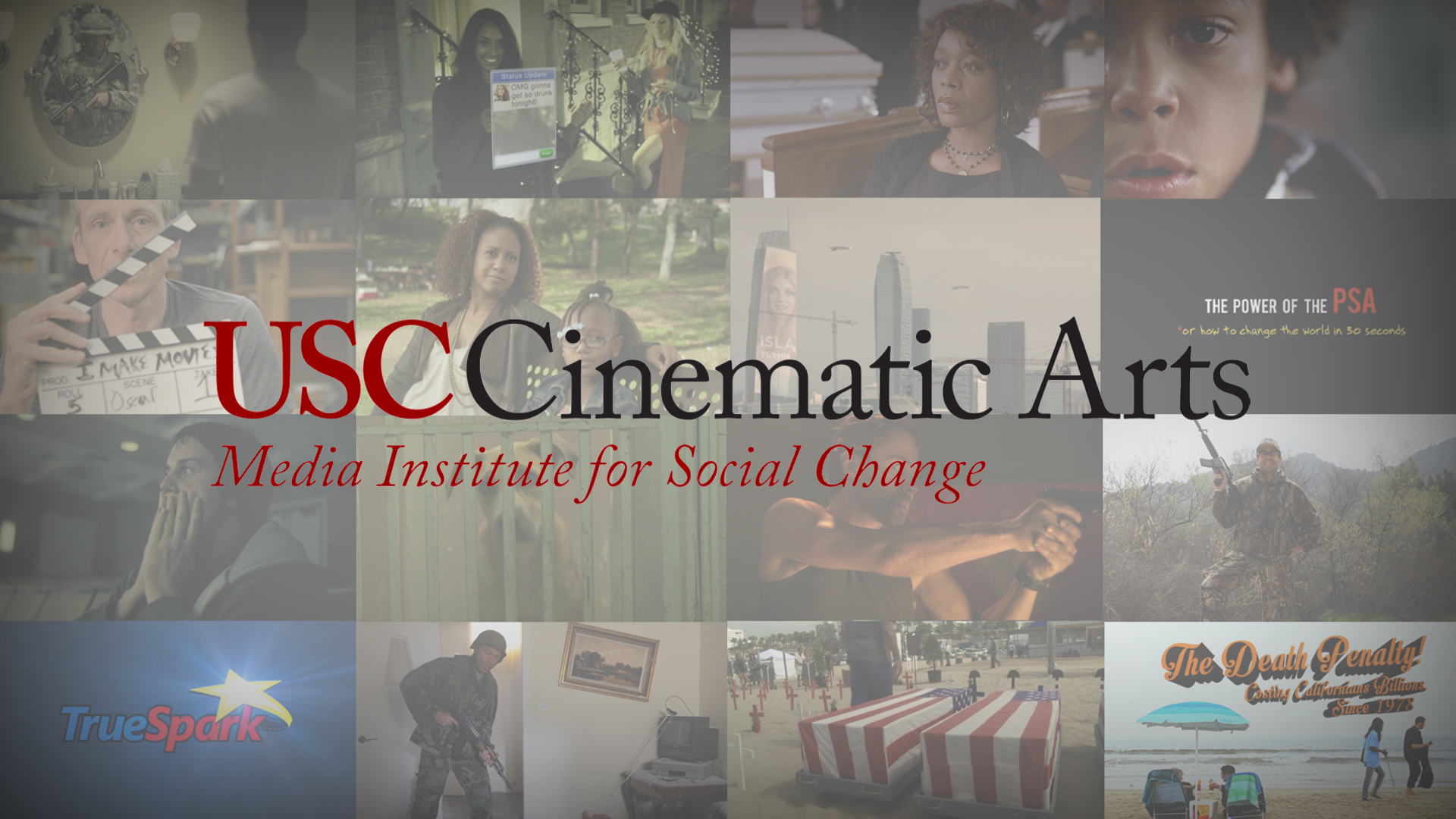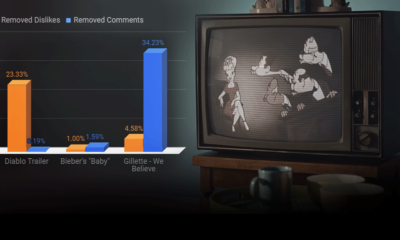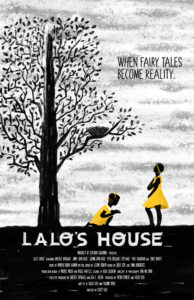Filmmakers
American Sniper: Did The Film Miss the Mark?

Clint Eastwood’s “American Sniper” has proven to be this year’s most controversial film, attracting devoted defenders and adamant opposers alike. Social media has served as a platform for countless voices and insistent opinion. Mainstream media has pegged it as “fascist propaganda,” as well as “the best film of the year.” What can we make of all this?
The controversy surrounding “American Sniper” reminds me of a similar situation that gripped Martin Scorsese’s 2013 film “The Wolf of Wall Street.” The film was called an appalling and highly irresponsible glorification of excess and degeneracy. Leonardo DiCaprio’s portrayal of a scheming Wall Street broker who piggybacks on the hard earned money of clueless Americans as he boasts about consuming enough drugs on a daily basis to sedate Manhattan was a little too much for some to ignore. Which was exactly the point. When Scorsese was asked about his portrayal of sex, drugs, and money he said: “To do something that has an obvious moral message, where two characters sit in the film and hash it out, or where you have titles at the end of the film explaining the justice, the audience expects that. I didn’t want them to be able to think problem solved, and forget about it. I wanted them to feel like they’d been slapped into recognizing that this behavior has been encouraged.” Despite Scorsese’s hope that his portrayal of Jordan Belfort would lead audiences to ultimately condemn such a lifestyle, there were still those who were unable to reach that conclusion. This is not to say that Eastwood’s “American Sniper” has such lofty goals, but parallels can be made between how audiences can interpret a film. One man’s condemnation is another’s aspiration; one man’s justice is another’s crime.
Much has been said about the portrayal of Iraqi civilians in “American Sniper” as bloodthirsty and militarized. The film’s opening sequence shows a mother sending a child to attack a group of SEALS with a grenade. In his own autobiography Kyle wrote “She was blinded by hate. She just wanted Americans dead no matter what.” Naturally many would perhaps agree with him, but I saw something else. I saw a desperate family acting violently, if not desperately and defensively, to what they saw as a threat by invaders. One person sees savagery, another sees desperation. You can claim that if Eastwood wanted to show Iraqi civilians as peaceful defensive people perhaps he could have spent more time elaborating on that. Though that’s a valid point from a filmmaking standpoint, I think it is our duty as viewers to take on a proactive and analytical approach. Do we agree with the decisions our protagonist makes? Do we perceive Chris Kyle’s actions as morally correct? If so, why? Perhaps more importantly, what does our opinions say about us? Eastwood steers clear of cheap emotional triggers in the film. He doesn’t utilize techniques like sentimental soundtracks or heroic cinematography to steer sentiment in one direction. This is a major credit to the film.
A Rolling Stone editorial titled “American Sniper is Almost Too Dumb to Criticize” takes quick stabs at the film. The article states: “Eastwood, who surely knows better, indulges in countless crass stupidities in the movie. There’s the obligatory somber scene of shirtless buffed-up SEAL Kyle and his heartthrob wife Sienna Miller gasping at the televised horror of the 9/11 attacks. Next thing you know, Kyle is in Iraq actually fighting al-Qaeda – as if there was some logical connection between 9/11 and Iraq.” Eastwood, who claims to be anti-war and against violence, surely does know better – and he hopes we do to. This analysis misses the point of the scene. It claims that the film presents the events of 9/11 in such a way that it produces a logical link between the attacks on the World Trade Centers and the invasion of Iraq. It’s clear that the scene does not cater to the audience; instead it caters to Kyle himself. It shows that to Kyle his involvement in Iraq was justifiable because of 9/11. That was his reason for deploying, that was his war, which was his obsession. In hindsight, and after much deliberation, we now know that 9/11 had very little to do with the subsequent events in Iraq. It is very easy for us to say that now, but we must not forget that many, if not a majority of Americans, felt the same way Kyle did. The invasion of Iraq was accepted, if not applauded. Perhaps Eastwood didn’t want to slap the audience into “recognizing that this behavior had been encouraged,” like Scorsese does in “Wolf,” but he nonetheless shows it in a way that is equally sobering, that is to say, accurately.
The same article goes on to say: “Eastwood plays for cheap applause and goes super-dumb even by Hollywood standards when one of Kyle’s officers suggests that they could ‘win the war’ by taking out the evil sniper who is upsetting America’s peaceful occupation of Sadr City.” The article is right in calling these ideas “super-dumb,” but I am reluctant to simply chalk it up to careless screenwriting. Of course Kyle can’t win the war by killing a single sniper. The belief that killing one enemy will create such a grand ripple effect so as to end the war is delusional, if not sad. Kyle clearly believes that he is the difference maker, the weight that will tip the scale in their favor. He eventually realizes his own mortal limitations by opting to not depart for a fifth (unrequired) tour in Iraq, instead dedicating himself to helping wounded veterans – perhaps his most redeeming quality.
Kyle’s reference of Iraqi soldiers and citizens as “savages” in the film has also been a hot topic of discussion. If anything, I found the use of the word too sparse. It’s no secret that Kyle truly believes his own rhetoric. “Savage, despicable evil. That’s what we were fighting in Iraq,” he says in his book. To omit the use of the word “savages” in the film would be to omit a fundamental element of who Kyle was and what he believed. Personally I found the use of the word jolting, to say the least. I don’t believe Kyle’s hate-filled rhetoric was meant to make him a more likeable character. You’d be hard-pressed to find someone clap in the movie theater when he says that. Or perhaps you did clap, or wanted to. If that’s the case I’d ask why. Again, and more importantly, what does that reveal about you?
I’m not saying that Kyle’s depiction in the film could not have been more critical of who he was, or who he represents himself to be in his book. There is no doubt that the film could have been more critical, but when the goal becomes simply to be critical, a film can lose its essence as an honest depiction of a very human an imperfect situation. To me proof of the film’s success is the very fact that there is such a large spectrum of opinions towards it. How is it that individuals can walk out of the same theater with drastically different interpretations and feelings toward the very same film? To me this reveals more about our current political situation, about the current state of world affairs, and about us as a society than anything else. In essence, the film is about something people can talk about. Some will agree, some will disagree. It’s an open dialogue, and that’s precisely what a film is supposed to be.
Filmmakers
Out of the Basement: The Social Impact of ‘Parasite’

When Bong Joon-ho’s Parasite won multiple Oscars at this past weekend’s 92nd Academy Awards, the reaction was one of almost unanimous joy from the attendees and much of the American audience. Setting aside the remarkable achievement of a South Korean movie being the first to win Best Picture, this was due to the fact that so many people have been able to identify with Bong’s film, engaging in its central metaphor(s) in their own individual ways. Everyone from public school students to Chrissy Teigen have expressed their affection for the film on social media, proving that the movie has reached an impressively broad audience. The irony of these reactions is noting how each viewer sees themselves in the film without critique—those public school students find nothing wrong with the extreme lengths the movie’s poor family goes to, and wealthy celebrities praise the movie one minute while blithely discussing their personal excesses the next. Parasite is a film about class with a capital “C,” not a polemic but an honest and unflinching satire that targets everyone trapped within the bonds of capitalism.
Part of Parasite’s cleverness in its social commentary is how it depicts each class in such a way as to support the viewer’s inherent biases. If you’re in the middle-to-lower classes, you find the Kim’s crafty and charming, and echo their critiques of the Park’s obscene wealth and ignorance. If you’re a part of the upper class, you empathize with the Park’s juggling of responsibilities while indulging in their wealth, and have a natural suspicion toward (if not revulsion of) the poor. If you have a foot in both worlds, like housekeeper Moon-gwang and her husband Geun-sae, you can understand how the two of them wish to not upset the balance, so that they can secretly and quietly profit. All throughout Parasite, there’s a point of view to lock onto.
The point of the film is not to single out one of these groups as villainous, but to show how they’re part of a system that is the true source of evil. The movie has been criticized for lacking a person (or persons) to easily blame, which would of course be more comforting dramatically. Bong (along with co-writer Han Jin-won) instead makes the invisible systems of class and capitalism the true culprit, which is seen most prominently at the end of the film. All the characters are present at the same party, whether as hosts, guests, help, or uninvited crashers, and each class group suffers a mortal loss. It’s all part of the tension built throughout the movie coming to a head, yet there’s an inevitability to these deaths as well, a price each group inadvertently pays to keep the corrupt system they’re all a part of running. In this fashion, the movie is reminiscent of several works of dystopian fiction, such as Shirley Jackson’s “The Lottery,” and Aldous Huxley’s “Brave New World.” The film particularly recalls Ursula K. Le Guin’s short story “The Ones Who Walk Away from Omelas,” in which a utopian society is dependent on the continual torture and misery of a single child. Every system demands sacrifice, and Bong and Han make clear that that sacrifice is paid many times over.
The real twist of the knife in Parasite is the epilogue, which reveals that the real point of the class and capitalist systems is to keep as many people in their place as possible. The Park’s remain wealthy, and easily move away from their old house. The Kim’s remain in their same squalid hovel, with their patriarch now stuck in the basement hideaway of the Park’s old home. In “Omelas,” the tortured child is kept in a basement, as well, and where that story tells of individuals who reject that system and choose to leave it, Parasite shows that everyone has chosen to stay, with the erroneous belief that they can eventually change their place. The film’s intense relatability is likely the main reason for it being so beloved, yet it’s the messages it sneaks in that will hopefully be its most lasting social impact. All of us are still trapped within the system, but at least the secret of how it fails us and how it lies has managed to escape the basement. Let’s hope we can eventually escape, too.
Filmmakers
What are the challenges of filming a foreign culture?

Filming a foreign culture is not like filming your own. There are a lot of challenges that are faced by people to film a foreign culture. One of the basic reasons is that you may not know much about that culture, which will act as a drawback when trying to accurately record it. It is not about the niche of the location, but the reality of it and where that takes us. When you film culture, you must have a great understanding of it. Therefore, you should study it to get a good understanding of the nuances of the culture.
Films have a huge impact on other societies, and if your film lacks the essence of the culture, it won’t be able to give a good impression to your viewers. A lot of people get overwhelmed by other cultures and their uniqueness, most of the times getting an idea about other cultures through film, television, and the internet. Be it culture or any other information, filming has played a huge role in cultivating an impression on the minds and hearts of the people.
Filming Foreign Cultures – A Challenge
Filming in foreign countries is difficult because penetrating deep into the society of any country and culture requires a good understanding of the subject. Having that understanding can alleviate these hurdles.
Seeing the Foreign Culture Through the Eyes of the Camera
Most of us get the an idea of foreign cultures from media representations, this is because we cannot experiences all the worlds cultures for ourselves. That’s why people use social media and other internet platforms to learn about different cultures around the world. That is why whatever you make, people will see, and start believing. Which is why there is a huge responsibility to show different cultures accurately.
Challenges Faced During Filming
When you take ownership of showing the world different foreign cultures, you must make sure that everything is authentic. Made up stories won’t do because they will have a bad impact on the culture but also your credibility. That is why you should try to keep things real and accurate.
Originality
Keeping everything in its original state is the best thing video maker can do. Uniqueness and creativity are acceptable, but when the things start getting faux, the real essence gets lost, which is why it’s important preserve things in their original form.
Money and Finances
For film shooting in foreign countries, a lot of money and financial aids are required. Very good artists don’t get the opportunity to use their abilities because they don’t have enough money to film. For productive and creative filmmaking you need money, if that’s not there the problems are obvious.
Video Making on Demand
If there is a demand for a particular story, everyone will try to make videos on that subject. Sometimes, in these cases, the real story gets hidden. Many times, people do not film what is needed because they re too busy filming what is trending. This affects the film industry and the filmmakers as well.
Lack of Creativity
Lack of creativity is no doubt a huge challenge for the film making industry. Sequels and remakes of the videos are not something in demand and that demeans the meaning of creativity. If you want to make a statement, you must show how creative you are. This will help you get to the limelight in no time.
The film industry is progressing at a very fast pace and with great power comes huge responsibility, that’s what we all need to understand. Admit the fact that what you portray will be saved forever, and that slight irresponsibility can ruin another culture, which should not be the intention of anyone.
This article was written by William Roy, check out his website Movie Trivia
Academia
What is USC’ Media Institute for Social Change?

The Media Institute for Social Change, known as MISC, is a production and research institute at the USC School of Cinematic Arts focused on using media as a tool for effecting social change. Founded in 2013 by Michael Taylor, a producer and Professor in the School’s famed Film & Television Production Division, the MISC maxim is that “entertainment can change the world.” It spreads this message by producing illustrative content, and by mentoring student projects, awarding scholarships and leading research. “We are training the next generation of filmmakers to weave social issues into their films, television shows and video games,” says Taylor. “As creators the work we do has a huge impact on our culture and that gives us an opportunity to influence good outcomes.”
In recent years MISC has partnered with organizations including Save the Children, National Institutes of Health and Operation Gratitude, and creative companies like Giorgio Armani, the Motion Picture Association of America and FilmAid, to create groundbreaking work that have important social issues woven into the narrative. MISC also worked with USC’s Keck School of Medicine to create Big Data: Biomedicine a film that shows how crucial big data has become to creating breakthroughs in the medical world. Other MISC films include the upcoming The Interpreter, a short film centered on an Afghan interpreter who is hunted by the Taliban, and The Pamoja Project, the story of 3 Tanzanian women who determined to help their communities by immersing themselves in the worlds of microfinance, health and education. MISC has also partnered with the app KWIPPIT to create emojis that spread social messages. Together they co-hosted the Project Hope L.A. Benefit Concert to spread awareness about the massive uptick of homelessness in Los Angeles.
The Power of the PSA or How to Change the World in 30 Seconds, which documented the institute’s collaboration with the Los Angeles CBS affiliate KCAL9 to make PSAs on gun violence, internet safety, and PTSD among veterans. Another MISC-sponsored film, Lalo’s House, was shot in Haiti with the intention of exposing the child trafficking that is rampant there and in other countries, including the United States. The short film (which is being made into a feature) was used by UNICEF to encourage stricter legislation prohibiting the exploitation of minors, and has won several awards, including a Student Academy Award.
“Our goal,” says Taylor, “is to send our students into the industry with the skills and desire to make entertainment that has positive impact on our culture.” The dream is a variety of mass-media entertainment where social messages aren’t an afterthought but are central to the storytelling.
For more about MISC and its projects, go to uscmisc.org.
-

 SIE Magazine9 years ago
SIE Magazine9 years agoWhat Makes A Masterpiece and Blockbuster Work?
-

 Filmmakers9 years ago
Filmmakers9 years agoFilms That Changed The World: Philadelphia (1993)
-

 Companies6 years ago
Companies6 years agoSocial Impact Filmmaking: The How-To
-

 Media Impact5 years ago
Media Impact5 years agoCan We Believe The Gillette Ad?
-

 SIE Magazine9 years ago
SIE Magazine9 years agoDie Welle and Lesson Plan: A Story Told Two Ways
-

 Academia8 years ago
Academia8 years agoFilmmaking Pitfalls in Deal-Making and Distribution
-

 Academia8 years ago
Academia8 years agoJoshua Oppenheimer: Why Filmmakers Shouldn’t Chase Impact
-

 Filmmakers9 years ago
Filmmakers9 years agoStephen Hawking vs The Elephant Man





















